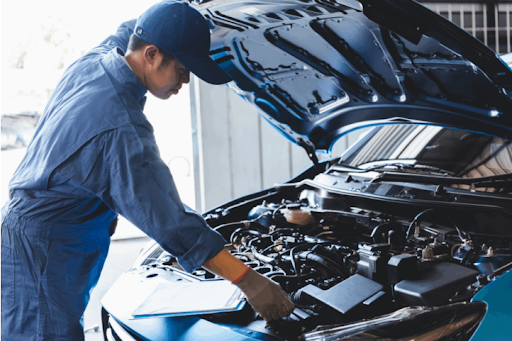Diesel engines are known for their durability, torque, and fuel efficiency, but like any high-performance system, they rely on well-maintained components to function properly. Among the most vital parts are diesel fuel injectors, responsible for delivering the right amount of fuel at the right time to ensure smooth combustion.
Understanding how to check diesel injectors can help you prevent performance issues, improve fuel economy, and avoid costly repairs. Whether you own a diesel vehicle or operate heavy machinery, this guide outlines what to look for and how to keep your fuel injectors in top condition.
The Role of Diesel Injectors:
Unlike gasoline engines, which use spark plugs to ignite the air-fuel mixture, diesel engines operate on a principle called compression ignition. Air inside the combustion chamber is compressed to very high pressure and temperature, and diesel fuel is then injected into this environment. The intense heat and pressure cause the fuel to ignite instantly.
For this process to be effective, diesel fuel injectors must deliver fuel in a very fine mist and at the correct pressure. Proper injector function is essential to ensure efficient combustion, minimize emissions, and maintain engine performance.
Signs of Injector Problems:
Diesel injectors are precision components, and even minor issues can lead to noticeable symptoms. Here are common warning signs that your injectors may need inspection or servicing:
- Difficult engine starts or failure to start at all
- Poor acceleration and noticeable loss of power
- Unusual exhaust smoke, including black, white, or blue emissions
- Increased fuel consumption
- Rough idling or engine misfires
- Knocking sounds or erratic engine behavior during driving
Ignoring these early warning signs can result in expensive diesel engine repair, especially if left unaddressed for too long.
Step-by-Step Guide: How to Check Diesel Injectors:
1. Visual Inspection
Begin by examining the exterior of each injector and its surrounding components:
- Look for any signs of leaks, carbon buildup, or physical damage
- Make sure all wiring and connectors are tightly attached and clean, with no corrosion or loose fittings
- Inspect the area around the injectors for diesel residue or unusual soot patterns
This basic inspection can reveal physical wear or external damage that may be affecting injector performance.
2. Listen for Engine Changes
Start the engine and observe its sound. Pay close attention to how the engine idles and responds to acceleration. Any abnormal noises, such as knocking, uneven idling, or misfiring, can suggest injector problems. A noticeable change in engine sound could indicate inconsistent fuel delivery from one or more injectors.
3. Cylinder Cut-Off Test
This test involves disabling one cylinder at a time while the engine is running to monitor changes in performance:
- If disconnecting a cylinder results in no change, that injector may be faulty
- A significant drop in performance usually means the injector is working correctly
While basic, this method is effective for isolating malfunctioning injectors.
4. Exhaust Smoke Analysis
Different colors of exhaust smoke offer clues about injector health:
- Black smoke may indicate too much fuel or restricted airflow
- White smoke can signal incomplete combustion or unburnt fuel
- Blue smoke might point to oil entering the combustion chamber, possibly from a damaged injector seal
Monitoring your exhaust is a quick way to gauge combustion efficiency.
5. Injector Balance and Return Flow Testing
More advanced diagnostic methods include:
- Injector balance testing, which evaluates how evenly each injector is contributing to engine operation
- Return flow tests, which measure how much fuel returns to the tank—excessive flow may suggest worn internal components
These methods are typically done in a workshop using specialized tools but are key in pinpointing performance inconsistencies.
Maintenance Tips for Long-Lasting Injectors:
To extend the life of your diesel injectors and prevent premature failure:
- Use clean, high-grade diesel fuel from dpfs australia to reduce the risk of clogging and contamination
- Change fuel filters regularly to prevent dirt and water from reaching the injector system
- Avoid letting your fuel tank run too low, which can draw sediment into the system
- Ensure the fuel system remains free of moisture and impurities
- Have your injectors inspected during routine engine maintenance intervals
Following these practices will help maintain reliable fuel injection and engine health.
Diesel Engine Oil: Can You Use Regular Oil?
A common question among diesel owners is whether regular motor oil can be used in a diesel engine. The answer is no. Diesel engines operate under higher temperatures and pressure compared to gasoline engines, and therefore require specially formulated oil that provides enhanced lubrication, soot control, and thermal stability. Using the wrong type of oil can reduce performance and cause damage over time.
Conclusion:
Knowing how to check diesel injectors is essential for anyone operating diesel-powered vehicles or machinery. From identifying signs of malfunction to performing basic inspections and understanding when to seek professional diagnostics, maintaining your injectors ensures better fuel economy, fewer emissions, and long-lasting engine performance.
Diesel engines offer incredible reliability—but only when their fuel delivery systems are in optimal shape. By staying proactive, using quality fuel, and monitoring performance closely, you can prevent breakdowns and extend the life of your diesel engine.
Frequently Asked Questions (FAQs):
- What do diesel injectors do?
They spray a fine mist of diesel fuel directly into the engine’s combustion chamber to enable ignition through high compression. - Can I use regular motor oil in a diesel engine?
No, diesel engines require oil formulated specifically to withstand higher pressures and temperatures. - What causes black smoke from a diesel engine?
It typically indicates a fuel-rich mixture or limited airflow, which may stem from clogged injectors or dirty air filters. - How often should I check diesel injectors?
It’s wise to check them every 30,000 to 50,000 miles, or if you notice performance issues like rough idling or poor acceleration. - What can contaminate diesel injectors?
Water, dirt, or low-quality fuel can clog or damage the injectors and affect spray patterns. - How do I keep my diesel injectors clean?
Use high-quality diesel, replace fuel filters routinely, and consider professional cleaning when needed. - What does blue smoke from the exhaust mean?
It usually indicates oil burning, which may be related to a faulty injector seal or internal engine wear.
8. Is it safe to diagnose injectors on my own?
Basic checks like visual inspections or sound tests are safe, but more technical assessments are best left to professionals.










